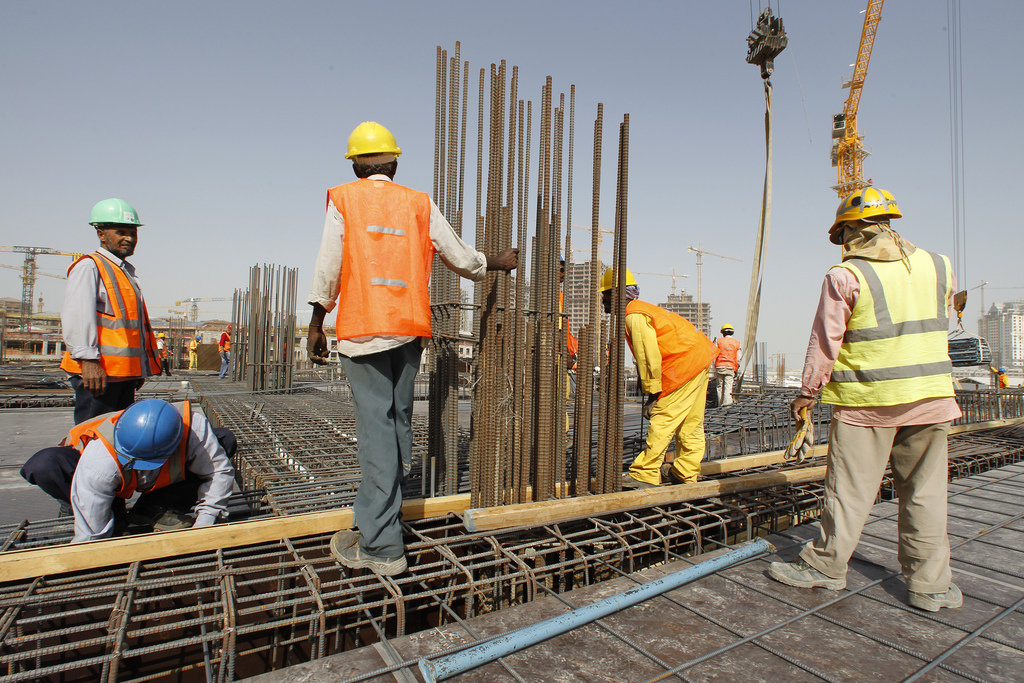Qatar’s move to reimburse the recruitment fee of bringing in 30,000 migrant workers for the construction of the FIFA 2022 World Cup facilities has been welcomed by the International Trade Union Confederation (ITUC).
More than 5,500 people from across South Asia, comprising one-third of the workforce, will be able to get back by the end of March the amount that they paid to intermediaries hiring them to work in Qatar, according to the confederation, reported the Peninsula. Doha is negotiating with mediators so they can recover the fee for the rest of the construction workers, who are projected to number 30,000 by 2019. The money may total up to £3.6 million, added ITUC.
“Recruitment fees are a major problem for migrant workers in many countries, including Qatar,” Sharan Burrow, the general secretary of the International Trade Union Confederation, said. Burrow added that cleaning up the recruitment process for migrant workers so they get the jobs and wages they signed up for, and stopping unlawful recruitment fee that forces migrant workers into debt bondage is a global challenge.
Efforts are being made by the Supreme Committee for Delivery and Legacy to deal with the problem and uphold the human rights of these workers who pay money to mediators in their home countries to work abroad.
The confederation said that as part of plans by Qatar to put an end to the abuse, contractors will reimburse the money paid by the workers over the period of their employment. The amount that will be reimbursed will be based on their country of origin as figures can vary.
According to the Labor Law of Qatar, a person who is licensed to recruit workers from abroad for others is prohibited from receiving from the worker any sums representing recruitment fees or expenses or any other costs.
However, the law is commonly flouted. According to the International Labour Organization, a migrant worker living in India pays on average $1,149 to the person recruiting him to go to Qatar. The corresponding sum is $1,054 in Nepal and $480 in the Philippines, reported Global Construction Review.
The workers are currently reimbursed if they can produce receipts, which happens only on some occasions. With the reforms, the proof will have to be produced by the contractors who will have to pay back workers their recruitment fee unless they provide evidence that they have already made the payment.
The ITUC has said that the move is “a positive step” towards getting rid of a system that compels many vulnerable workers into debt bondage.
“In the source countries there is still this strong narrative that the streets are paved with gold in other countries. People feel that but it often costs much more to get there than they think,” Rosey Hurst, the head of Impactt, an ethical trade consultancy that has completed a report on worker welfare in Qatar, said, according to the GCR report.
In May last year, an Indian carpenter died of a heart attack while he was working at the Qatar World Cup stadium. The tournament organizers, however, said that his death was not due to the working conditions. Three more Indians had died of heart attacks earlier on World Cup sites, according a 2016 report by Qatar’s World Cup organizing body. According to the Human Rights Watch, 95 per cent of the labor force in Qatar includes migrants, of which 40 per cent people are involved in construction work. The country has an estimated 6,30,000 expatriate Indians.
